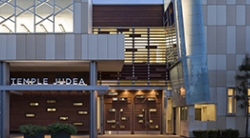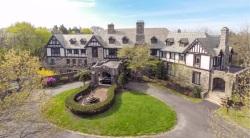
Our goal as parents and educators of our gifted learners is to maximize their potential. Doing so requires that we understand how our gifted children learn, and that we create an environment which fosters their natural proclivities. The public school system is designed for the average student, and our gifted children can fail to thrive while immersed in such a culture.
In order to assist our gifted children in avoiding the frustration which stymies curiosity, and in continuing in their love for learning, adequate academic challenge needs to be part of the curriculum.
Encourage Growth in Interest Areas
It isn’t practical to allow a child to only focus on one or two areas of academic passion, and nor is it advisable to do so. Permitting a gifted child to focus solely on a limited amount of interests is akin to allowing a child to only eat pizza for every meal. Every child benefits from a well-rounded diet of food for the body, and food for the mind.
When it comes to gifted learners, however, we also want to ensure that there is the freedom to spend time pursuing what he or she is distinctly passionate about. Unlike in the past, where being a Renaissance man was the goal, our world has evolved into a culture of specialization. It is up to our gifted children to find and develop their individual niches in society, so that their abilities can shine.
It is common knowledge that things which come too easily can be taken for granted. Once your child’s particular gifts have been identified, seek out ways to assist in the development through challenging your child to grow in them. Your child can benefit from studying others who have excelled in such areas, and can receive inspiration from exposure to those who have already forged a path in the child’s preferred area of discipline.
Avoid Repetition and Rote Memorization
Within our public educational system, there is the idea that doing the same task, over and over again, is the best way for the information to be stored in a student’s long-term memory.
It certainly works, as many adults can readily recall that the “mitochondria is the powerhouse of the cell.” But, what does holding this information, forever in our minds, actually do for us? Unless we grow up to become biologists, this information is just taking up space in our brains. It is a random, unconnected, bit of data.
The only challenge that such repetition and rote memorization provides for a gifted child is the challenge of overcoming frustration. While the ability to buckle down and complete tasks that we find monotonous and pointless can be a valuable life skill, it can also result in a gifted child developing a distaste for academia.
Many highly successful, and gifted, individuals can attest to this phenomenon as fact. A multitude of gifted individuals have dropped out of college, as they have found this type of inapplicable structure stifling their creativity. As our nation insists on compulsory education before the age of 18, we can only speculate as to whether these individuals would have preferred dropping out, sooner.
When approaching education, bear in mind that the true mark of learning is the synthesis of knowledge. Gifted learners thrive on gathering information in a way which results in their forming of working models of the world. Unlike with random, rote, memorization, subject matter which is introduced in context of a broader learning goal will provide the gifted student with the challenge of linking information.
Observations can be formed into hypotheses, and hypotheses can translate into theory. Ideally, the gifted child will have the opportunity to be challenged through some experiments of their conceptions, as well.
Offer Options to Test Out and Move On
Closely related to the lack of a gifted learners need for repetition of subject matter that is already understood – or is inapplicable to the child’s way of constructing knowledge about the world – is the benefit of allowing the student to “test out” of subjects. The existence of this option provides gifted learners with two forms of challenge.
Primarily, the ability to test out allows for the students to demonstrate mastery, while providing them with the freedom to move on to more complicated subject matter. Secondly, the gifted child tends to thrive on reaching goals, and can turn the ability to master the subjects quickly – in order to test out – into a form of self challenge.
Many colleges offer this testing option for basic courses, in the form of CLEP exams, and some states offer this option in the form of completing a test which demonstrates high school curriculum proficiency.
Our elementary and middle schools are less prone to provide testing as an option to move on, which can result in the gifted child being forced to wait while the rest of the students catch up. This waiting can equate to boredom, which is a good recipe for tempting a gifted child toward mischief or academic apathy.
One way around this problem, if the gifted child is in mixed classes, is through the implementation of tiered learning systems. In a tiered system, curriculum is designed to meet the comprehension level of the student.
For example, an entire class may be studying plant biology. Students who are in a less advanced tier might be learning the names for the parts of a plant, while students of higher comprehension might be conducting their own experiments on the effects of soil quality on the overall plant production.
Foster Collaboration Between Gifted Learners
A second benefit of a tiered learning system is that students can be grouped according to ability. While learning to socialize with other students – of various abilities – is a valuable life skill, a gifted child is best challenged by interaction with academic peers.
This idea is supported by the average public school GATE program, though one could argue that gathering together once or twice a week is hardly adequate stimulation. Being around those of a similar comprehension level is both stimulating, and normalizing.






